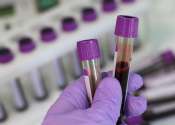Hematology, also spelled haematology, is the branch of biology (physiology), pathology, clinical laboratory, internal medicine, and pediatrics that is concerned with the study of blood, the blood-forming organs, and blood diseases. Hematology includes the study of etiology, diagnosis, treatment, prognosis, and prevention of blood diseases. The lab work that goes into the study of blood is performed by a medical technologist.
Blood diseases affect the production of blood and its components, such as blood cells, hemoglobin, blood proteins, the mechanism of coagulation, etc.
Physicians specialized in hematology are known as hematologists. Their routine work mainly includes the care and treatment of patients with hematological diseases, although some may also work at the haematology laboratory viewing blood films and bone marrow slides under the microscope, interpreting various haematological test results. In some institutions, haematologists also manage the haematology laboratory. Physicians who work in haematology laboratories, and most commonly manage them, are pathologists specialized in the diagnosis of haematological diseases, referred to as haematopathologists. Haematologists and haematopathologists generally work in conjunction to formulate a diagnosis and deliver the most appropriate therapy if needed. Haematology is a distinct subspecialty of internal medicine, separate from but overlapping with the subspecialty of medical oncology. Haematologists may specialise further or have special interests, for example in:
only some blood disorders can be cured.
(Hematology comes from the Greek words ἁίμα (haima) meaning "blood" and λόγος (logos), a root commonly employed to denote a field of study.)









